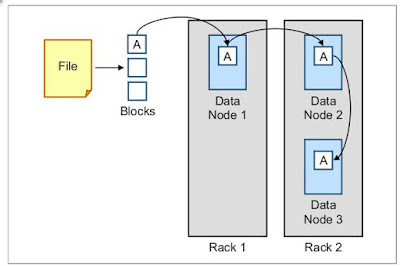Transforming Energy Management with Big Data and IoT Analytics
Introduction
Did you know that the global energy demand is expected to increase by 50% by 2050? As energy consumption continues to rise, efficient energy management becomes crucial for sustainability and cost savings. Enter Big Data and IoT (Internet of Things) – two powerful technologies that are revolutionizing the way we manage energy. By harnessing the vast amounts of data generated by IoT devices, real-time analytics can optimize energy use, reduce waste, and promote renewable energy sources. This article delves into how Big Data and IoT are transforming energy management, offering insights and practical tips for leveraging these technologies.
Section 1: Understanding Big Data and IoT in Energy Management
What is Big Data in Energy Management?
Big Data refers to large and complex datasets that traditional data-processing software cannot manage. In the energy sector, Big Data includes information from various sources such as smart meters, sensors, weather forecasts, and market data. The primary characteristics of Big Data are volume, velocity, variety, and veracity.
What is IoT in Energy Management?
IoT involves interconnected devices and systems that collect and transmit data in real-time. In energy management, IoT devices include smart meters, thermostats, and sensors that monitor energy usage, production, and distribution. IoT analytics processes this data to provide actionable insights, enabling efficient energy management.
Section 2: Key Benefits of Big Data and IoT in Energy Management
Enhanced Energy Efficiency
One of the main advantages of integrating Big Data and IoT in energy management is improved energy efficiency. Real-time data analytics allows for the precise monitoring and control of energy consumption, leading to significant savings. For instance, smart thermostats can adjust heating and cooling based on occupancy patterns, reducing energy waste.
Renewable Energy Integration
Big Data and IoT facilitate the integration of renewable energy sources into the grid. By analyzing weather patterns and energy production data, grid operators can predict and manage the variability of renewable energy, ensuring a stable and reliable energy supply.
Predictive Maintenance
IoT sensors can monitor the condition of energy infrastructure in real-time, enabling predictive maintenance. This proactive approach reduces the risk of equipment failure and extends the lifespan of assets. According to a study by ScienceDirect, predictive maintenance can reduce operational costs by up to 25%.
Real-Time Energy Monitoring
Real-time monitoring of energy consumption and production allows for immediate adjustments to optimize energy use. IoT-based energy management systems, such as those offered by ThingsBoard, provide dashboards for visualizing energy data and making informed decisions.
Section 3: Practical Tips for Leveraging Big Data and IoT in Energy Management
Invest in Scalable Infrastructure
To handle the large volumes of data generated by IoT devices, it is crucial to invest in scalable infrastructure. Cloud computing platforms like Azure IoT offer scalable solutions that can grow with your business needs.
Implement Real-Time Data Processing
Real-time data processing is essential for extracting immediate insights from energy data. Technologies such as Apache Kafka and Spark Streaming enable efficient real-time data processing, allowing for timely adjustments in energy management.
Ensure Data Security and Privacy
With the increasing amount of data being collected, data security and privacy are paramount. Implement robust security measures such as encryption, access control, and regular security audits to protect sensitive information.
Utilize Advanced Analytics
Advanced analytics, including machine learning and AI, can uncover patterns and trends in energy data that are not immediately apparent. These insights can lead to more efficient energy management strategies and innovations.
Conclusion
Big Data and IoT are transforming energy management by providing real-time insights that drive efficiency, sustainability, and cost savings. By understanding the benefits and implementing practical strategies, businesses and organizations can unlock the full potential of these technologies. As the demand for energy continues to grow, the integration of Big Data and IoT will play a crucial role in shaping the future of energy management. Embrace these powerful technologies to stay ahead in the competitive landscape and contribute to a sustainable future.
References
- A smart home energy management system using IoT and big data
- Methods and applications for Artificial Intelligence, Big Data, Internet
- Big Data for Energy Management and Energy-Efficient Buildings
- Digital twin and big data-driven sustainable smart manufacturing
- Renewable energy management in smart grids by using big data
- IoT for Energy | Microsoft Azure
- IoT in Energy Management: Solutions & Benefits [2025]
- IoT Energy Management & Monitoring with ThingsBoard
- IoT-based energy management | Phoenix Contact




Comments
Post a Comment